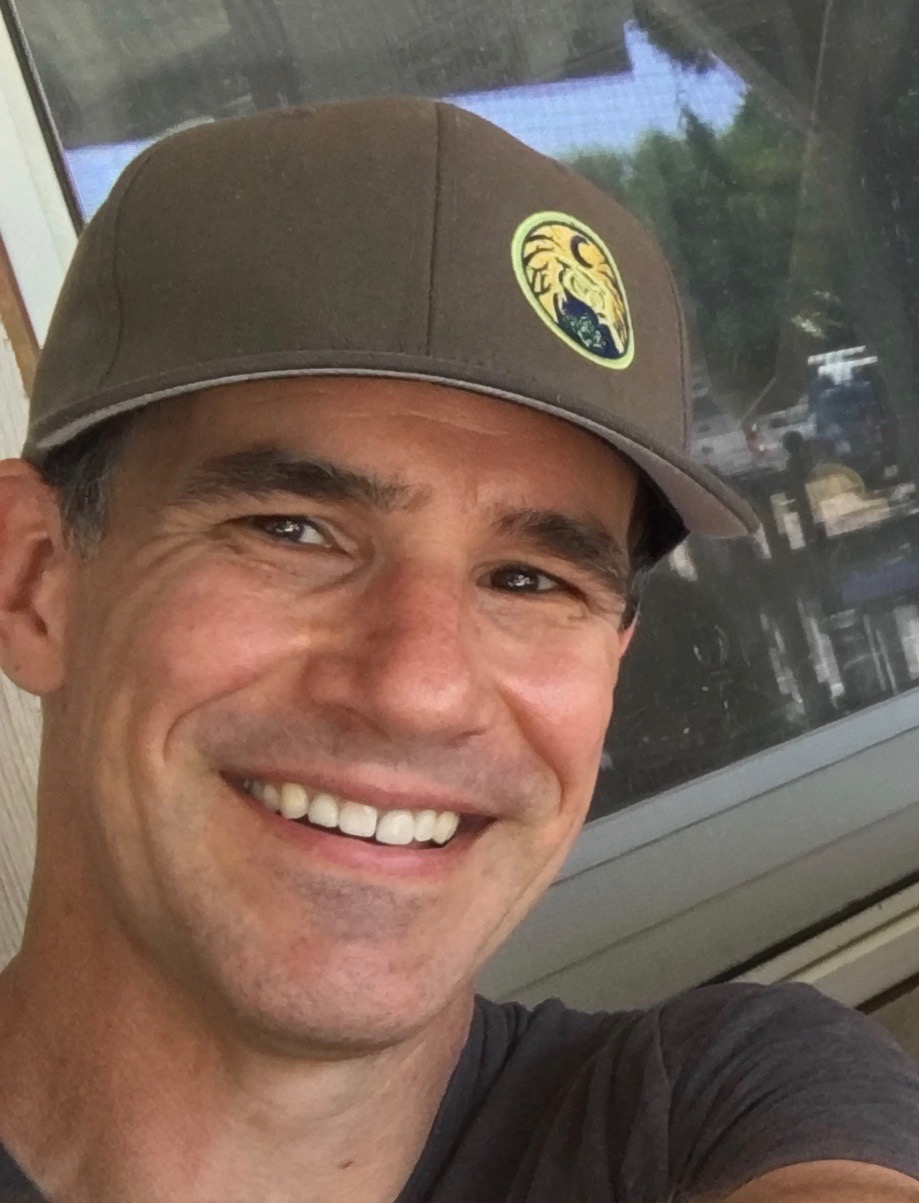“Start at the forginning,” my daughter A used to insist, as I read her one bedtime story after another. The cadence of the spent parent, for the nth time animating Library Lion, crawled into an out-of-tune “I Love the Mountains” and merciful slumber.
Forginning. A’s “mistake” sunk her quickening tongue, her toddler’s lips unable to round her be into shape. In her slip, an omen: we’ll need new words—mutinous and mangled—to encounter and defy her climate-changing planet. Was forginning an inkling of this nascent language? In forgiveness, begin. Or, begin by forgetting?
Since those nights in the winter of 2016, I’ve been imagining A’s compound word seeding the ground for paragraphs that contest the ecological death sentence handed down by our rulers. I started with a definition:
Forginning, n., 1. an origin marked by a fortuitous flub; 2. a beginning forged by a child’s unruly tongue; 3. a creation story with the morphological properties of Play-Doh. Synonym, Begiving.
Then I sought a syntax in the moods, scenes, and phrases of our daily lives. Now, with our ears pressed to the earth, A and I are learning to speak—and sing—as the forginning looms in front and back of us.
In the forginning, A skirts the Goodyears the sun will reduce to puddles, plops into the undying plastic of her booster seat, and straps her kinetic torso to our Subaru. While I whisk her to soccer practice, she belts clangorous songs behind my back. I hear the wild hymns of the billions of A’s who can’t see over the dash, who can’t take the wheel, delivering us from the rising seas.
In the begiving, the children finally stir in their elders a hunger for putting their money where their mouths are. Signs of their appetites abound. Above the gates of A’s elementary school in the “famously hot” capital of South Carolina, a plaque reads:
ERECTED BY
THE PEOPLE FOR
THE BENEFIT OF
THE CHILDREN
Since 1925, residents have strolled, cycled, and driven past these lofty prepositions—by, for, and of—which structure the sentence of communal child-rearing. On September mornings, the air is thick as a sauna as four lanes of traffic skim the sidewalk. A and I hustle by the evidence of a public responsibility replaced by endless fundraisers, the tardy bell beckoning us RUN.
In the forginning, a question rises like steam from the asphalt: How can I be a “good” parent in the climate catastrophe, when the future looms over children like a slow-motion tidal wave? Another question backfires from a coal-roller’s tailpipe, just below its PRIUS REPELLANT bumper sticker: How can I teach my child to disobey the grammars of “the good life” and helplessness alike, when the future I imagine for her swings wildly between hope and horror?
In obeying the clock, we jet past the school’s epitaph for the common good. If the plaque’s a sentence fragment, is A’s school its absent subject or its predicate? By banished by the corporations. For scattered far and wide, held dear in a thousand private clubs. Of slipped beneath the Nikes pounding the playground. The playground itself sinkholing under their soles.
“Why is the earth sick,” A asks one afternoon, “What’s the earth’s medicine?” Later, gathering twigs to build a fairy house, “Why do the bad guys hate the planet?” Then, collecting cicada shells, which “live” in a bowl in our kitchen: “If the earth dies tomorrow, where will we go?”
Forginning. To begin with for. THE BENEFIT OF. Ask before each act: For when? THE PEOPLE FORTHCOMING. For whom? THE CHILDREN. In this beginning, past and future join streams. Each be is loosed on the wave of for, a flotilla escaping a hurricane, dodging floating cars and felled power lines. Through which of the harrowing channels could another world be forged?
Playing outside one evening, A improvises a refrain, “There’s only one sky but a hundred years of cicadas here!” I envision time dilating into the next century. A gardens in a green expanse, her arms locked with countless others, my daughter grown old and steady as the red oak now towering above her.
In the begiving, one word with a riot of syllables rises resilient from the floods: generations. Drowned, two words marked by the x of the wrong answer, the disavowed action—hoax and expensive—weapons our do-nothing rulers use to condemn the earth’s children. Everywhere, the act of forgoing the cruel fiction of endless growth takes hold. Everywhere, kids chase the grownups from their shelters, tax and otherwise. In the tiny universe of our bungalow, A proclaims of our overlords: “They’re not just adults, they’re elders, they should know better.”
At bedtime, A’s new favorite, Freedom on the Menu, tells the story of the Greensboro sit-ins from the perspective of a young girl, Connie, who would’ve been barred from A’s public school in 1960. Connie’s father tries to shield her from the hard truths of social revolution. “You’re still too young for these things,” he tells her. “Is she my age?” A asks me. “Am I too young?” Tonight, I answer this question, for better or worse, Probably. Then I picture A and Connie’s granddaughter, trowels in hand, embracing in that green expanse.
When I dream that A gifted me the word forginning, I awake knowing that my for is misaligned with the world after I’m gone. Forgive me, A, for you didn’t give me the word, like I gave you this world. We hold them between us, like two armholes of a life preserver through which our fingers find each other. PFD squeezed between us, we ride out the long night’s waves of heat together, our voices joining the chorus welcoming a new dawn.

